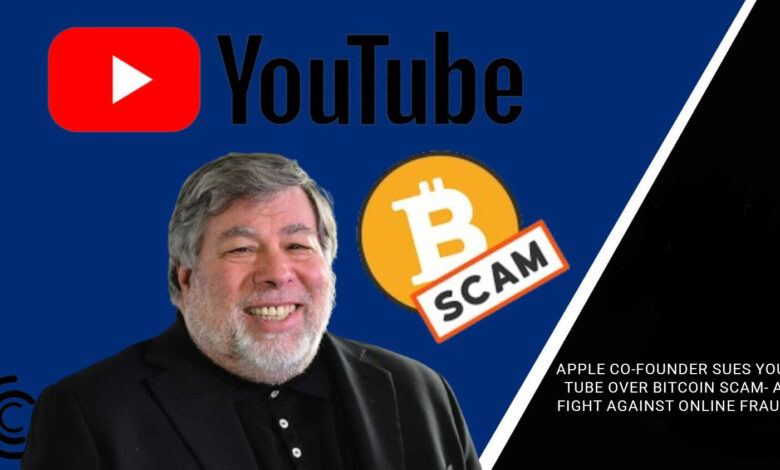Apple Co-founder Sues YouTube Over Bitcoin Scam- A Fight Against Online Fraud

Steve Wozniak, the co-founder of Apple, has been locked in a legal battle with YouTube over a Bitcoin scam that used his likeness. This case raises important questions about the responsibility of online platforms for content posted by users and the legal protections afforded by Section 230 of the Communications Decency Act. Here is a closer look at the case.
The Bitcoin Scam and Lawsuit
In 2020, doctored videos featuring Wozniak appeared on YouTube. These videos falsely portrayed him as promoting a Bitcoin giveaway scam, where viewers were directed to send cryptocurrency in exchange for a much larger return (which they never received). Wozniak, along with 17 other supposed fraud victims, filed a case against YouTube and the parent company, Google. The lawsuit claimed that YouTube:
- Failed to taking down the fraudulent videos despite repeated requests.
- Profited from hosting and promoting the scam videos.
- Used verification badges on the hijacked channels, giving them an air of legitimacy.
The Role of Section 230
A key aspect of the case revolves around Section 230 of the Communications Decency Act. This law generally protects online platforms from liability for content posted by users. However, the lawsuit argues that YouTube’s actions of providing verification badges go beyond mere hosting of content and constitute a material contribution to the scam.
Section 230 is a controversial piece of legislation. Proponents argue it is essential for promoting innovation and free speech online, while critics argue it allows platforms to avoid responsibility for harmful content such as hate speech, misinformation, and even illegal activity.
Court Rulings and Potential Impact
The case has seen two key rulings:
- Lower Court- In 2022, a Santa Clara County Superior Court judge ruled in favor of YouTube, citing Section 230 as a shield against liability.
- Appeals Court- In 2024, a San Jose appeals court overturned the lower court’s decision. The appeals court judges argued that YouTube’s verification badges could take away Section 230 protection, allowing the lawsuit to proceed.
This latest ruling is a significant win for Wozniak and others suing YouTube! It opens the door for holding platforms accountable for actions that contribute to online scams, even if the fraudulent content itself originates with users.
What Lies Ahead
The case will now return to the Santa Clara County Superior Court. Wozniak and the other plaintiffs can amend their lawsuit to further detail how the verification badges allegedly contributed to the scam. They seek unspecified damages and an order forcing YouTube to warn users and prevent future scams.
Likely Outcomes:
- Wozniak wins- A successful lawsuit could set a precedent for holding platforms liable when their actions contribute to online fraud.
- YouTube wins– If YouTube prevails, it could solidify the broad interpretation of Section 230 protection.
The case could spark renewed debate and potential changes to Section 230 to better address online fraud and harmful content. Moreover, the outcome could influence how other online platforms handle verification and user-generated content.
Final Thoughts
The Wozniak vs. YouTube case highlights the ongoing challenges of regulating online content and striking a balance between free speech and accountability. The outcome will have significant implications for both online platforms and users alike.
https://cointelegraph.com/news/apple-co-founder-wins-youtube-bitcoin-scam-lawsuit





